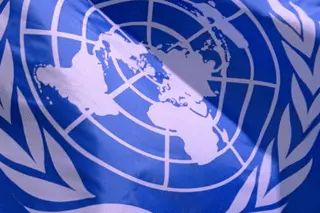I'm preparing for a KPFA radio interview this morning, and so have had to brush up on precisely what went down in Bali over the past week. In essence: Everything, and nothing. Global delegates agreed to a plan that (we hope) will eventually lead to a successor to the weak tea and expiring Kyoto Protocol. That successor treaty will be negotiated in late 2009 in Copenhagen--two years from now. In Bali the U.S. was essentially browbeaten by the rest of the world--global moral suasion proved powerful enough to get State Department negotiator Paula Dobriansky to stop blocking the development of the Bali action plan (PDF). But the U.S. also prevailed in preventing that plan from explicitly mentioning targets for emissions reductions: the plan calls for "deep cuts," but doesn't get any more explicit in its official language. As far as I can tell from news reports, the issue that Dobriansky ...
Good Golly from Bali
The Bali action plan aims to set a framework for future global warming negotiations, influencing U.S. climate policy.
More on Discover
Stay Curious
SubscribeTo The Magazine
Save up to 40% off the cover price when you subscribe to Discover magazine.
Subscribe













